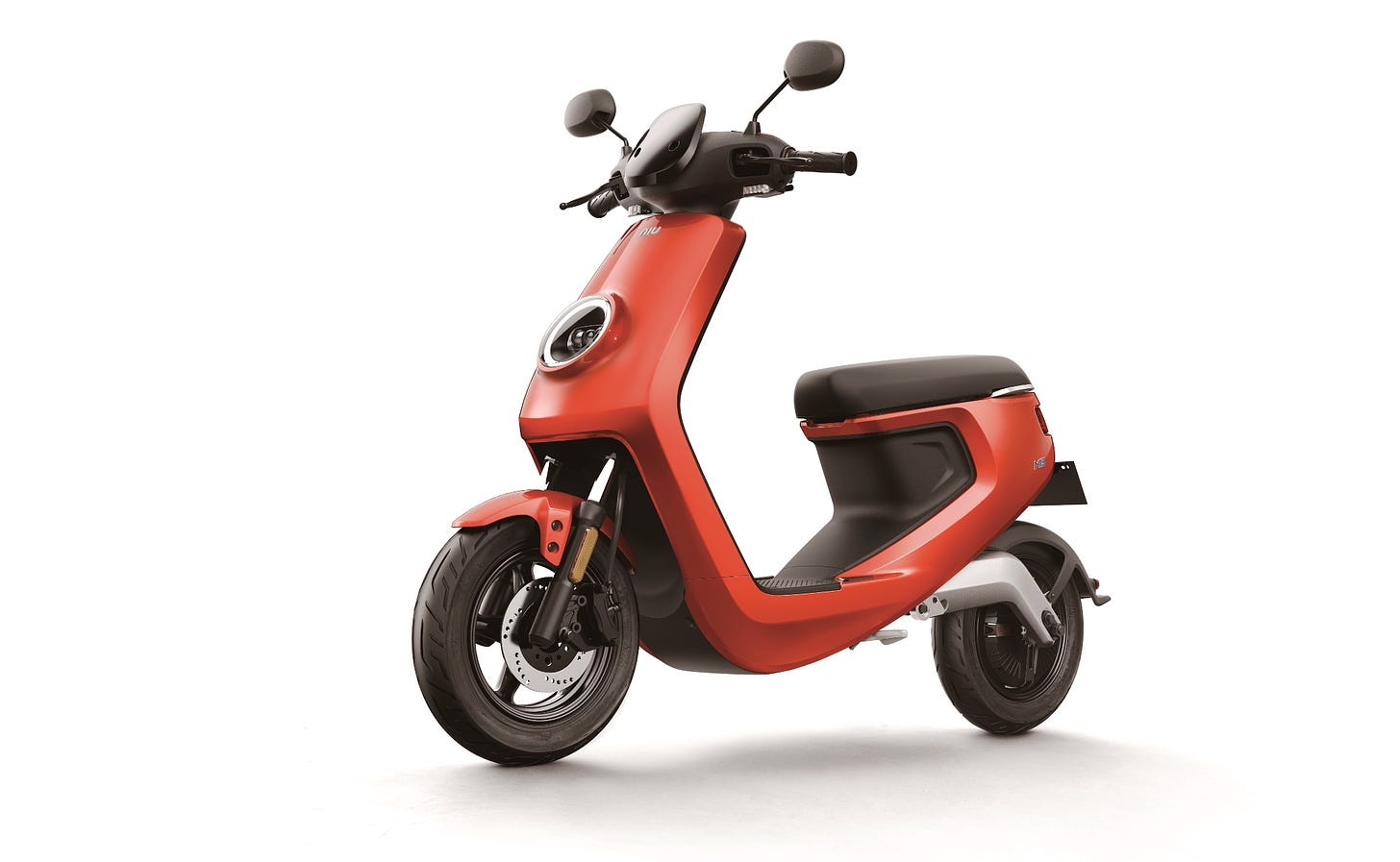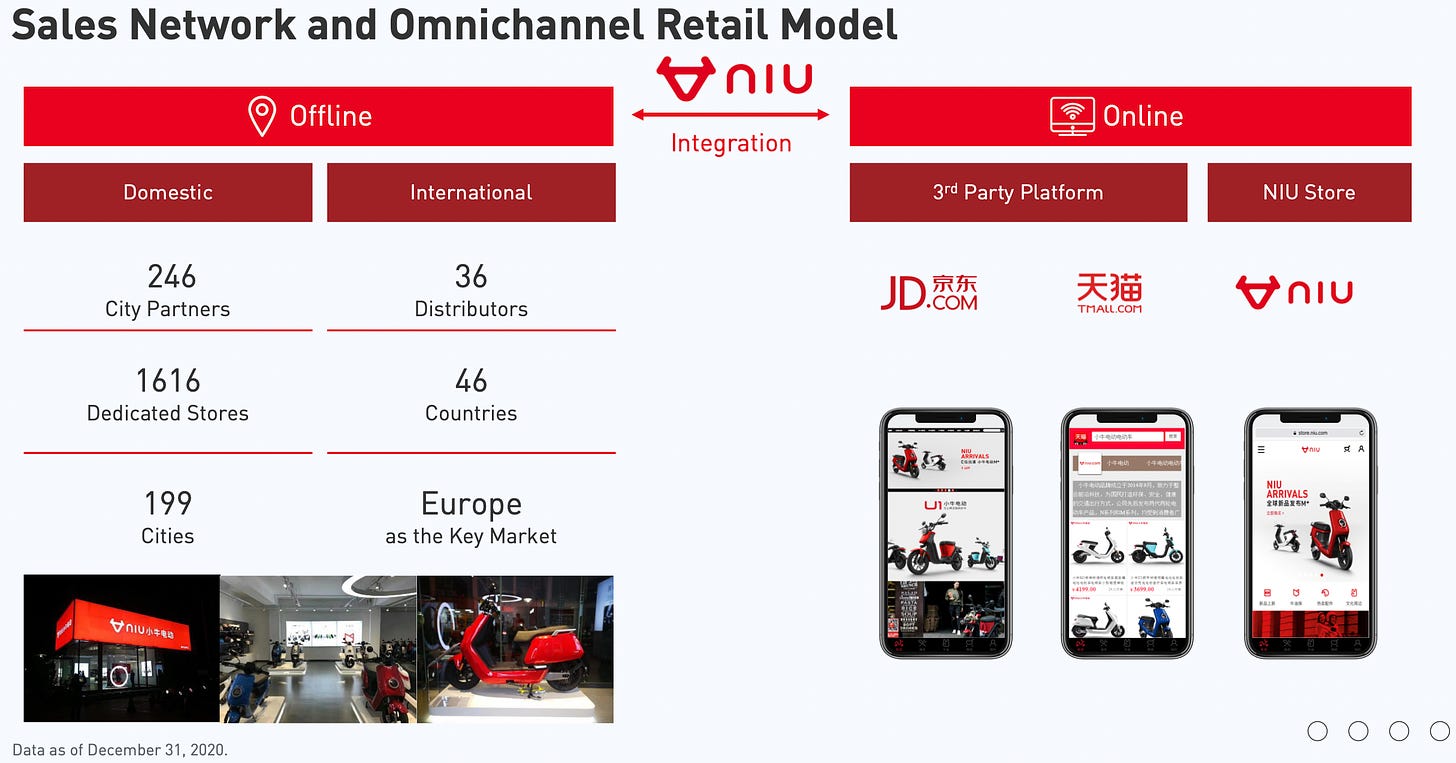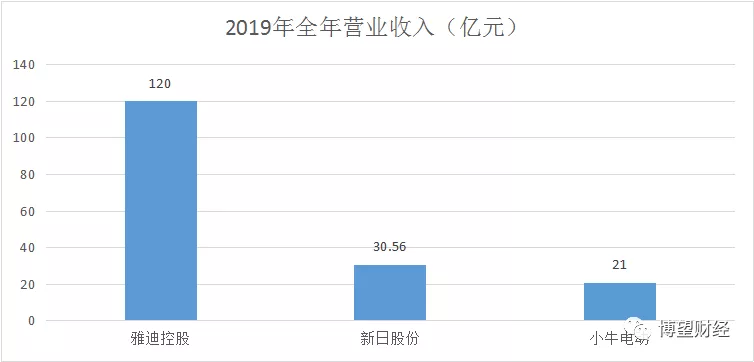The "Tesla of Electric Scooters"
How NIU - the Chinese EV brand - is revamping how we move around cities.
大家好 / Hello everyone
If you have driven a vehicle in your life, you will know exactly what I am talking about. Think of all the times you were stuck in traffic and wished that you could simply "zippity zap" through it, and nimbly escape it. This is one of the main advantages of owning a scooter when it comes to urban mobility.
A scooter, be it gas-powered or electric, has been the number one transportation choice in the last 30 years in most of China and Southeast Asia. It worked mostly as a "workhorse" of the urbanite, a carrier of groceries, deliveries, family members, and even of clients in the case of motorized taxi services, like Grab or Gojek in Southeast Asia. Some cities, like Saigon, are even known for the sheer amount of scooters they have.
China has had a sort of love-hate relationship with this method of transportation. On the one hand, the flexibility that a scooter provides is an empowering feature for a food-delivery courier who needs to move around fast through many intersections of a megapolis like Shanghai. On the other hand, the popularity of scooters could mean that a city's population is not as advanced, or economically capable to own a car, the most comfortable of all vehicles.
By wanting to showcase their recent economic development, and environmental concerns, many Chinese local governments - mostly in Tier 1/2 cities (i.e Beijing, Shenzhen, Shanghai) - prohibited ICE (internal combustion engine) scooters inside the city, and greatly limited electric ones. Electric scooters manufacturers changed their products' looks and capabilities consistently to abide by the ever changing regulations. These changes mostly focused on vehicle weight which resulted in many concoctions. These models turned out to be hybrids between a bicycle and scooter, or products made of cheap plastic in order to cut as many kgs as possible.
At some point, NIU (小牛) founders thought, why couldn't they have an e-scooter with the same quality as Italian Vespas but with a lower weight and smart features? So they built one.
This week I am taking a look at an innovative company that is not mentioned a lot in Europe and North America although you can already get its products there. Hope you enjoy it and, if you do, subscribe to my newsletter and feel free to share any feedback over Twitter 🐦 (@jorgegoncalo), or in the comments section.
NIU
"The world’s leading provider of smart urban mobility solutions." - This is how the Changzhou-based, and 2014-founded, NIU describes itself in their corporate profile. NIU produces, supplies, and builds high-performance electric bicycles, mopeds, and bikes. The company presents itself as a tech-focused solution to urban vehicles and boasts an "omnichannel retail model". What does that mean in reality? It means that they hope you have a seamless customer experience whether you are buying your next scooter online from a mobile device, a laptop or in a brick-and-mortar store, the same way you would buy a piece of clothing from Taobao.
Here is a graph explaining it better from their Q4 2020 Corporate Presentation:
NIU tries to introduce more smart features to vehicles. The same features that you can find in EV cars like Teslas or NIOs (similar name but a completely different company), like automatic turning signals, tracking your vehicle location from the app on your mobile device, and self-diagnostics for issues. It also offers some arguably gimmicky features like cruise control (on a scooter...) and the possibility to change the sound of your turn indicator.
In China, NIU is mainly operating in bigger cities although it has plans to expand to 10,000 stores in the next 5 years in more rural and inland areas. Externally, its key market is Europe where the cities are similarly conducive to the usage of scooters, hence the popularity of the Italian Vespa brand.
It wasn't always smooth sailing for NIU though. One of its co-founders, Li Yinan, was convicted of insider trading in 2017. Actually, NIU launched its first product 2 days before Li Yinan's arrest in 2015! Before his arrest, Li Yinan, now 47, was praised as a prodigy by Chinese media for enrolling in university at the age of 15 and becoming Huawei's youngest-ever vice president at the age of 27. After his final conviction, the co-founder stepped away from the company and currently only owns 5% of its shares. According to the enterprise data website QCC, the current legal representative since the summer of 2018 is Hu Yilin with 89.7% of shares. The current CEO, Li Yan, took charge around the same time.
In October 2018, NIU again made the news for failing to reach its aimed goal of $150 million during its IPO in the US's NASDAQ stock market. The company reduced its aims to 119 million USD. NIU finished its first day in the markets with a 3.9% stock price decrease in what was justified as a tough market.
The truth is that there are at least 3 factors that had, and still have, a negative impact on the company's wellbeing:
Similarly to many rapidly expanding companies, NIU has been suffering from a net profit loss for years.
Established players in the scooter market like Yadea, Xinri, and new players like Hello Chuxing are increasingly turning their pressure, with the first two having a way bigger share of the market than NIU.
Internationally there is a long-standing perception among consumers that China only produces low-quality, low-priced goods. (Even mentioned by Li Yan in 2018)
Now, does NIU have any chance of succeeding as a traditional scooter brand? That would be quite a hard achievement. Their focus though seems to be industry disruption through innovation and achieving key partnerships. So what do they mean by innovation?
The number one factor for innovation is their lithium-ion batteries. NIU's marketing materials mention and emphasize their usage, as they are supposed to be more efficient than traditional lead-acid batteries and last longer. The lithium-ion batteries are also making the models lighter which matters the most to the Chinese consumer as there are strict regulations regarding the usage of electric scooters in cities. The other side of innovation is reflected in design and tech. Besides winning Red Dot Design awards for their products, their app features are geared towards the smartphone-addicted generations that want to be able to know instantly where their vehicle is located and track their usage through many fancy graphics. Supposedly these scooters even do on-air software updates like Tesla.

Looking for strategic partnerships might be the most interesting growth platform for NIU if it wishes to expand further abroad. In 2019, it already partnered with Volkswagen on the German brand's Streetmate model. On the other hand, NIU can also expand its customer base through the supply of their micro-mobility vehicles for popular shared-mobility apps like Revel and Lime. Most recently, NIU's biggest partnership so far has been in the news: they have been announced to have talks for the possibility of being a supplier for Gojek, one of the biggest ride-hailing services in Southeast Asia (that primarily uses scooters as taxis).
Last year, NIU sold 600,892 two-wheelers worldwide, up 43% from the previous year. Around 95% of these purchases were made in China, with the majority of them coming from the country's most populated cities. The Chinese company is doubling its production volume and expects to produce about 2 million scooters by 2021. Internationally, NIU's sales of electric scooters increased by 168.8% year over year to $17.7 million, accounting for 17% of overall revenue, up to nine percentage points from the same time last year. It is still a small market share but it also denotes a growth trend. At the same time, NIU's net profit also dropped on a year-on-year basis, due to a bigger increase in areas like Research and Development (an increase of 55.7%).
If you are interested in the world of micro-mobility, I would keep an eye on this company, and follow its expansion closely. Who knows, maybe one will zip past you the next time you go for a walk in your city.
For now, I recommend this great video review from Fully Charged on Youtube.
Was this article useful?
My name is Jorge and China Abridged is where I write weekly about Chinese technology and society. I have a B.A in Asian Studies with the University of Lisbon, won a scholarship from the Confucius Institute for academic excellence, and lived for 2 years in the Middle Kingdom.
For the past 4 years, I have been involved with one of the biggest fintech startups in the world and now I spend my time honing my language skills, perusing articles about 中国, and perfecting my RSS feed.
You can check out all past issues here. Also, I would be extremely thankful if you shared this article with your friends and colleagues if you found it interesting.
Any suggestions for topics or feedback? Let me know on Twitter 🐦 @jorgegoncalo.





